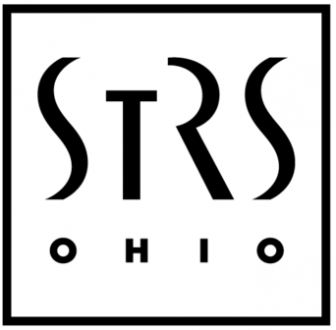STRS Posts Investment Return Over 29% for FY 2021
For the fiscal year ending June 30, 2021, STRS reported a net investment return of 29.16%. This figure is net of all management fees, carried interest and other costs. Additionally, the fund beat its investment benchmark by 1.18%. This means that active management of the fund, as opposed to investing solely in index funds, added approximately $790 million (net of costs) over the fiscal year.
This rate of return was the highest for STRS since 1983. STRS total fund assets increased by over $17 billion with a market value of $98.8 billion. This is welcome news as it will increase the long-term stability of the pension fund. Further, OEA believes that as financial conditions improve, STRS should take action to reduce the contribution rate for active teachers and work to restore the cost-of-living adjustment (COLA) for retired teachers.
OEA, in collaboration with the Health Care and Pension Advocates (HPA), urged the STRS Board to establish a plan with clear financial guideposts for restoring benefits. The Board adopted a policy that once the system is 85% funded, they will consider changes that do not materially impair the fiscal health of the pension plan. The annual actuarial valuation in October will show how close this brings the plan to 85% funded.
Walters Appointed to Fill Vacancy on STRS Board
During the August meeting of the STRS Board, Rita Walters was elected by a majority of the Board to fill a vacancy as a retired member. Walters recently completed a four-year term on the Board and had finished third in the election for two retiree seats. Robert Stein, who had finished second in the election, resigned his seat before beginning his new term.
Walters is a retired language arts teacher from the Switzerland of Ohio School District and a member of OEA-R. She was elected by the STRS Board to a one-year term, September 1, 2021 through August 31, 2022. An election will be held among STRS benefit recipients to elect a representative for the remaining three years of the term.
STRS Responds to Seidle Report
Earlier this year, the Ohio Retired Teachers Association (ORTA) commissioned a third-party “forensic audit” of STRS. A report was released by Edward Siedle entitled The High Cost of Secrecy which was critical of STRS investment practices and operations. The report alleged that STRS is not sufficiently transparent in providing information on investment fees and suggests that changes in STRS investment strategies could save money in a way that could help contributing and retired members of the system.
OEA urged the STRS Board to take the Siedle report seriously and fully investigate the claims. Further, OEA asked that STRS communicate openly with its findings, whether deficiencies have been found and what is being done to address them.
On Thursday, August 19, 2021, STRS staff and consultants presented to the Board a detailed response to the Siedle report. The response refuted the claims in the report. STRS notes that the report is not in fact a forensic audit as its author is neither an accountant or auditor and not bound by professional standards. Further, the report overestimates, misstates and miscalculates various fees and performance costs of the system—including double-counting fees on alternative investments. The full response can be viewed here.
OEA has confidence that the elected members of the Board will continue to closely monitor STRS investment practices. Investment returns are the primary driver of paying future pension benefits. Active and retired teachers rely on STRS to invest these assets prudently
SERS Board Passes Motion to Pursue Pension Legislation

On Friday, September 17, 2021, the SERS Board unanimously voted to pursue legislation that would allow the Board to set a Contribution Based Benefit Cap (CBBC). If enacted, the legislation would allow the SERS Board to set a cap on how much greater a member’s pension benefit can be than a single life annuity based on the member’s total contributions. The concept is similar to a policy adopted by OPERS. Such a cap is designed to keep the majority of members from subsidizing benefits of a few members with irregular contribution histories.
SERS staff presented the Board with information on applying a range of CBBC factors. Modeled on recent retirements, a factor of 4.5 would impact 6.3% of retirees whereas a factor of 5 would affect 2.5% of retirees. Those who converted to retirement from a disability benefit would be excluded from such a cap.
The Board motion authorized SERS staff to work with stakeholder groups on the concept and to pursue the introduction of legislation. The Board’s intention is for the legislation to grant them authority to set the CBBC factor rather than setting a number in statute. The discussed timetable was to have something introduced early in 2022.
![]() Click here to download a copy of this September 2021 Report to the OEA Board of Directors. Previous Retirement Systems Updates can be viewed under the Affiliate Resources tab on the OEA website.
Click here to download a copy of this September 2021 Report to the OEA Board of Directors. Previous Retirement Systems Updates can be viewed under the Affiliate Resources tab on the OEA website.

